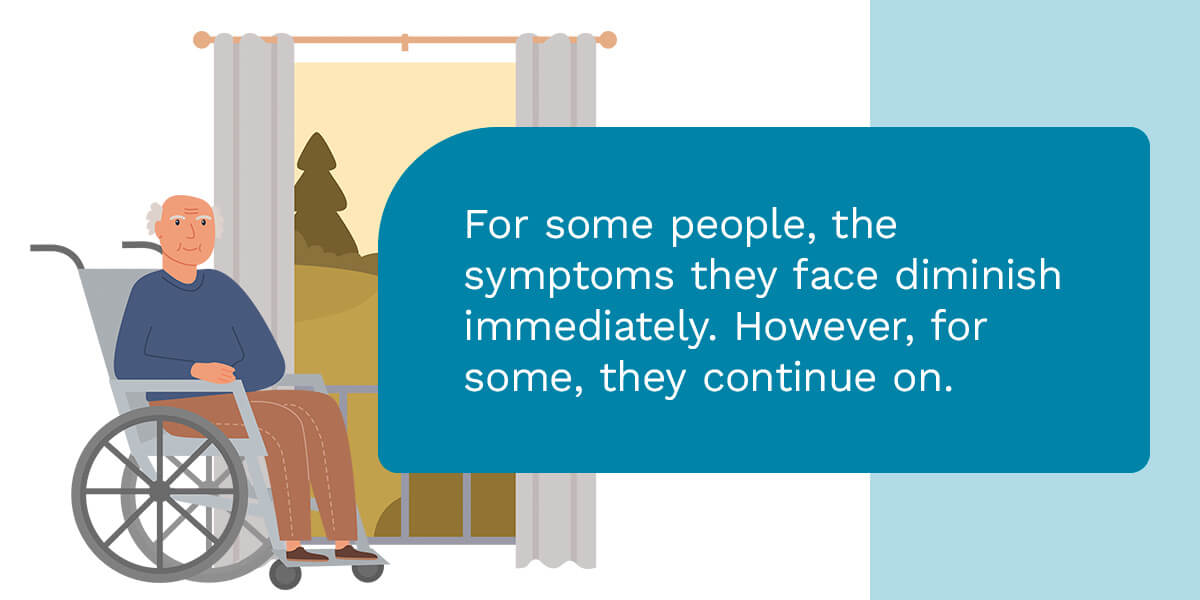4 Simple Ways of Helping Someone Cope with Sundowning

If you have an older adult in your life who suffers from dementia, you might also notice a change in their behavior as late afternoon and early night approaches. Doctors call this “sundowning,” “sundown syndrome” or even “late-day confusion.”
What Is Sundowning Behavior?
Sundowning is not an actual condition but a side effect that many individuals with Alzheimer’s and other types of dementia may face. As sunlight starts to fade, you may notice them start to get more anxious and upset. These kinds of behaviors can extend into the nighttime, impacting their quality of sleep.
The cause of sundowning is not widely understood. Usually, though, sundowning behaviors are more common in either the middle or later stages of dementia.
While it’s linked to lower levels of sunlight in the late afternoon and night, there are other factors that are believed to contribute to or exacerbate sundowning behaviors. One possible cause is a distributed biological or body clock, which then impacts the sleep-wake cycle. Other possible causes could be not getting enough sunlight or getting overstimulated during the day.
What Does Sundowning Behavior Look Like?
Symptoms of sundown syndrome in older adults may vary, but common behaviors during the latter half of the day can include:
- Anxiety and agitation
- Sadness
- Restlessness
- Confusion
- Disorientation
- Mood swings
- Hallucinations or delusions
- Extreme pacing
- Wandering
- Rocking

Ways to Help Someone Cope With Sundowning
If you know an older adult who is dealing with sundowning, you may be looking for ways to help them cope. While preventing sundown syndrome is impossible, as a caregiver, you can engage in a number of techniques that can help reduce “late-day confusion” and agitation.
The following tips may help with sundowning:
1. Make a schedule and try to follow it
People suffering from Alzheimer’s usually cannot remember new things, which makes it hard for them to develop new routines. This unfamiliarity in their daily life can cause stress and agitation which seems to play a role in causing the symptoms to surface. Hence, keep individuals calm and collected by setting a regular time for eating, sleeping, etc. The familiarity provides them with security.
2. Light it up for them
Theories to explain sundowning are many, but one reason that stands out is the change in a client’s sleep-wake cycle. To address the issues, experts have suggested adjusting the lights in the room – by adding bright or fluorescent lights. This can help prevent those with sundowning from assuming that it is nighttime, which in turn, will make them less agitated and confused.
3. Distract and attract
Divert the person away from self-consuming thoughts and anxieties by engaging in activities that they love. These may include engaging in physical exercise, going for walks, or even playing music. Distractions help reduce daytime napping, increasing the chances of peaceful sleep at night.
4. Be there for them but do not overdo it
Try to stay calm when you’re dealing with someone who is sundowning. Do not argue with those suffering, even if they face hallucinations or delusions. Just reassure them, tell them they will be fine and that you are there watching out for them. Your presence in itself offers them the familiarity they crave.
Managing sundown syndrome is not easy. It requires patience and time, but a little support from you can help ease anxiety and confusion.
Help the Older Adult in Your Life Live Gracefully at Home
At Corewood Care, it’s our goal to improve the way health is managed, allowing our clients to thrive and live gracefully at home. As a home care agency, we provide an array of care services that we tailor to each individual’s needs, and partner with the Alzheimer’s Association for the highest quality of care for our clients.

Older adults who are struggling with sundowning may benefit from having reliable, professional in-home care, providing them with round-the-clock support. From assisting with activities of daily living (ADL) to advocating for clients with the right tools and options, our caregivers are here to provide a holistic approach to care— when it’s needed most.
We rely on an integrated care management and home care model that combines technology with a multidisciplinary team focus. With dementia specialists, nutritionists and other professionals, we’ll make sure needs are covered.
We invite you to learn more about our home care services or schedule a free consultation to get started.





